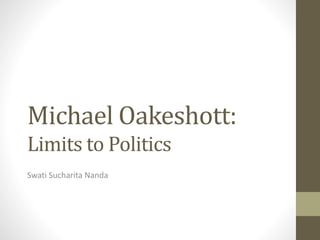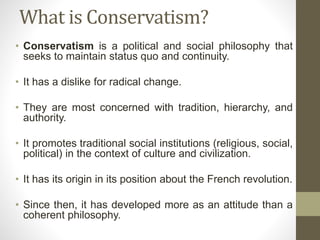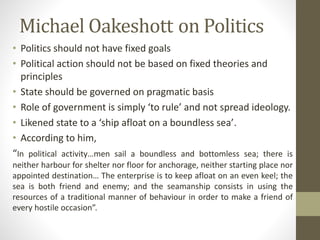Michael Oakeshott was a 20th century British philosopher who made important contributions to conservative political thought. He criticized rationalism in politics and argued that political institutions evolve organically based on tradition and experience rather than abstract rational principles. Oakeshott believed politics should focus on practical knowledge rather than technical rules, and that the role of the state is to govern pragmatically and maintain stability rather than pursue ideological goals. He advocated for a minimalist state and pluralistic political order based on civil associations respecting tradition over rational designs for society.



















